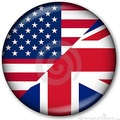Question
Updated on
16 Mar 2021
- Japanese
-
English (UK)
-
French (France)
-
Simplified Chinese (China)
Question about English (UK)
What does The English-translated Japanese Constitution begins with : "We, the Japanese people, ...". Why didn't they stipulate "We the people of Japan...", like the Constitution of the United States ? Would you come up with any possible explanation? mean?
What does The English-translated Japanese Constitution begins with : "We, the Japanese people, ...". Why didn't they stipulate "We the people of Japan...", like the Constitution of the United States ? Would you come up with any possible explanation? mean?
Answers
19 Mar 2021
Featured answer
- English (UK)
I don't know why the former translation was chosen but "the Japanese people" sounds more collective than "the people of Japan." "The Japanese people" is a collective noun phrase referring to all Japanese. If it were "we Japanese people" then it would imply each individual but it would be very informal. "the people of Japan" is less collective and could/does easily imply all the individual people. "The people of Japan" could refer to the individuals or at a stretch to the collective, people as a whole. I would use "the people of Japan" and I don't think it sounds any less modern.
Highly-rated answerer
Was this answer helpful?
Read more comments
- English (UK)
- English (UK)
You could possibly construe "the Japanese people" as meaning something different to "the people of Japan", but I don't think that is the case here. It's likely just because "the Japanese people" is a simpler, more modern expression than "the people of Japan".
Was this answer helpful?
- English (US)
- English (UK)
The grammar and syntax of different languages are different. There is no reason that the Japanese Constitution should mirror or mimic the US Constitution.
In other words, the Japanese Constitution is the Japanese Constitution. There is no reason that it should sound like the US Constitution.
Highly-rated answerer
Was this answer helpful?
- English (UK)
I don't know why the former translation was chosen but "the Japanese people" sounds more collective than "the people of Japan." "The Japanese people" is a collective noun phrase referring to all Japanese. If it were "we Japanese people" then it would imply each individual but it would be very informal. "the people of Japan" is less collective and could/does easily imply all the individual people. "The people of Japan" could refer to the individuals or at a stretch to the collective, people as a whole. I would use "the people of Japan" and I don't think it sounds any less modern.
Highly-rated answerer
Was this answer helpful?
[News] Hey you! The one learning a language!
Do you know how to improve your language skills❓ All you have to do is have your writing corrected by a native speaker!
With HiNative, you can have your writing corrected by native speakers for free ✍️✨.
With HiNative, you can have your writing corrected by native speakers for free ✍️✨.
Sign up
Related questions
Similar questions
- According to the current Constitution, in order to hold a national referendum for its revision, a...
- Constitution makes powers separate. Does this sound natural?
- Constitution exists to bind and restrict the authority, preventing them from abusing their rights...
Recommended Questions
- What does hi please help. I was just browsing and this Pop-up appeard. it looked so official— l...
- What does hi please help. in particular I admired his determination. what's " in particular" in...
- What does chut mean?
- What does Let’s go for a quick one mean?
- What does why You bully me ? mean?
Topic Questions
- What does Sometimes it just goes in one ear and right out the other mean?
- What does What did you come? mean?
- What does I 'm reading a kids book " Big Nate", in that book "P.S. 38" expression appears a lot. ...
- What does What could possibly be funny? mean?
- What does Use you common sense mean?
Newest Questions
- What does maricas mean?
- What does Tables have turned mean?
- What does We feel energized mean?
- What does Yet at the start or a sentence mean?
- What does What’s the difference between “ I should have killed you” and “ I should have you kille...
Previous question/ Next question

Thank you! Rest assured your feedback will not be shown to other users.
 Thank you very much! Your feedback is greatly appreciated.
Thank you very much! Your feedback is greatly appreciated.











